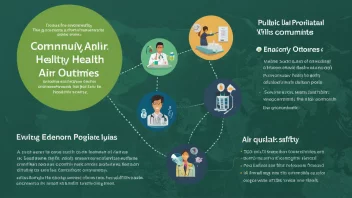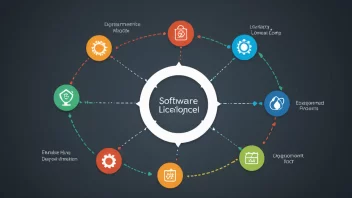In an increasingly interconnected world, emerging health crises pose significant challenges to healthcare systems and governance. From pandemics to antibiotic resistance, the need for adaptable healthcare policies has never been more pressing. This article explores how various healthcare policies evolve in response to new health threats, highlighting key strategies and frameworks that have been implemented globally to safeguard public health.
Understanding Emerging Health Crises
Emerging health crises encompass a variety of situations, including infectious disease outbreaks, environmental health threats, and chronic health issues exacerbated by socio-economic factors. These crises can arise unexpectedly and often require rapid responses from policymakers. Key aspects include:
- Definition: An emerging health crisis is typically characterized by a sudden increase in incidence or prevalence of a health issue.
- Examples: COVID-19, Zika virus, and the opioid epidemic are all instances of emerging health crises.
- Impact: These crises can strain healthcare resources, disrupt economies, and challenge existing health policies.
The Role of Data in Policy Adaptation
Data plays a crucial role in shaping healthcare policies during health crises. The collection, analysis, and dissemination of health data enable policymakers to make informed decisions. Important considerations include:
- Real-time Surveillance: Continuous monitoring of health trends allows for timely interventions.
- Predictive Analytics: Leveraging data to forecast potential outbreaks and resource needs is vital.
- Public Health Research: Supporting research initiatives helps identify effective strategies for crisis management.
Collaboration Across Sectors
Addressing health crises often requires collaboration between various sectors, including government, healthcare, non-profits, and the private sector. Effective collaboration can lead to:
- Resource Sharing: Pooling resources can enhance response capabilities.
- Information Exchange: Open communication channels facilitate the sharing of best practices and lessons learned.
- Innovative Solutions: Cross-sector partnerships can drive innovation in healthcare delivery and policy implementation.
Policy Frameworks for Rapid Response
Governments and health organizations have developed specific policy frameworks to respond to emerging health crises effectively. These frameworks often include:
- Emergency Preparedness Plans: Comprehensive plans that outline protocols for various health scenarios.
- Legislative Support: Laws that enable swift action, such as emergency funding and resource allocation.
- Public Communication Strategies: Clear messaging to inform the public and manage fear during crises.
Lessons from Recent Health Crises
Recent health crises provide valuable lessons for future policy adaptations. Key takeaways include:
- Flexibility is Key: Policies must be adaptable to changing circumstances and new information.
- Invest in Infrastructure: Strengthening healthcare infrastructure is critical for effective crisis response.
- Community Engagement: Involving communities in policy development fosters trust and compliance.
In conclusion, the ability of healthcare policies to adapt to emerging health crises is essential for protecting public health. By understanding the nature of these crises, leveraging data, fostering collaboration, developing robust policy frameworks, and learning from past experiences, governments and health organizations can enhance their preparedness and response capabilities. As we face an uncertain future, ongoing vigilance and adaptability in healthcare policy will be crucial in navigating the complexities of emerging health threats.






